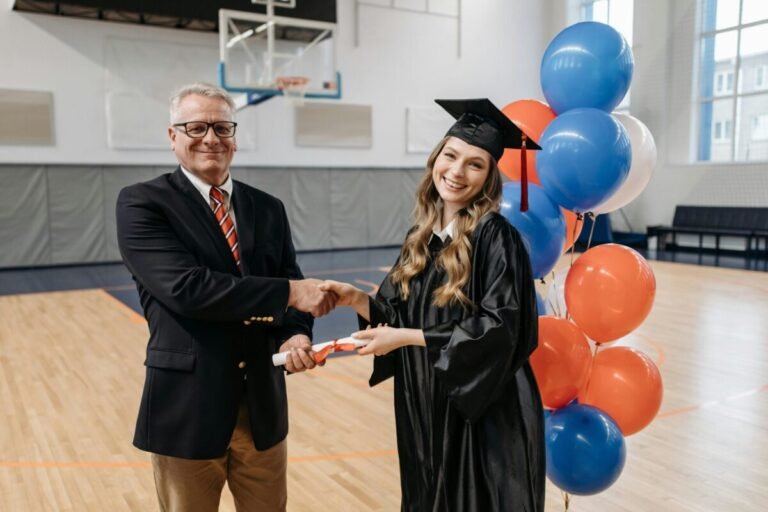So, you’re ready to apply for your first summer camp counselor job, but you’re staring at a blank screen, wondering where to begin with your cover letter. What if you’ve never worked at a camp before? What should you say if you don’t have a lot of experience?
There is no need to worry as most camp directors aren’t looking for a perfect resume filled with years of experience. They’re looking for someone dependable, upbeat, and excited to make a difference in a camper’s summer. That’s where a thoughtful, human-centered cover letter comes in.
In this guide, we’ll walk you through how to write a warm, tailored, and enthusiastic cover letter, step-by-step. Even if this is your first job in a summer camp setting, you’ll learn how to highlight your strengths and show that you’re exactly the kind of person camps want on their team.
How to Write a Great Cover Letter for a Summer Camp Job (Even If It’s Your First One)
Step 1: Research the Camp First
Before you start writing, take 5–10 minutes to learn about the camp you’re applying to. This will help your letter feel genuine and specific—not like something you copied and pasted for 20 different jobs.
Look for:
- The camp’s mission, values, or culture
- Special programs (e.g., outdoor adventure, arts & crafts, sports, STEM)
- Keywords in the job posting like “teamwork,” “leadership,” or “positive role model”
You’ll use what you learn to connect your strengths to what the camp is looking for. You can search the camp’s website and social media, or check the job posting for details that stand out. It only takes a few lines in your letter to show that you’ve done your homework—and it makes a strong impression.
Step 2: Start with a Friendly, Personalized Greeting
If the job posting lists a name, use it:
Dear Ms. Patterson, or Dear Camp Director Taylor,
If you can’t find a name, a greeting like Dear Camp Pinehill Hiring Team or Dear Camp Director works just fine.
This small detail adds a personal touch and sets the tone for a thoughtful letter.
Step 3: Open with Energy and Honesty
Use the opening paragraph to say who you are, why you’re applying, and what excites you about this particular opportunity.
Example:
I’m thrilled to apply for the summer camp counselor role at Camp Pinehill. While this would be my first time working in a formal camp setting, I’ve spent the past few years leading group activities, supporting kids through mentorship and school clubs, and working in fast-paced, kid-focused environments. I’d love to bring that energy, creativity, and responsibility to your campers this summer.
This opening balances enthusiasm with honesty—and quickly communicates that you have transferable skills, even without direct camp experience.
Step 4: Focus on Transferable Experience
Now it’s time to tell your story. Think about the jobs, volunteer work, or school experiences where you’ve:
- Worked with kids
- Led or supported groups
- Communicated clearly
- Stayed calm under pressure
- Solved problems or adapted on the fly
These are the same strengths that make a great camp counselor.
Example:
As a volunteer mentor with Big Buddies, I helped elementary school students with reading and led weekly group activities. I also worked part-time at a community center, where I organized after-school events and kept kids engaged through play, crafts, and team games. Both roles taught me how to lead with patience, adapt quickly, and create a safe, fun environment for children of different ages and personalities.
You don’t need a perfect list of qualifications—just stories that show who you are and what you bring. If you’re really new to working with kids, it’s okay to mention things like babysitting, tutoring, student leadership, or even helping out with younger siblings. What matters most is how you describe what you learned from the experience.
Step 5: Connect to the Camp’s Mission
This is where the research you did earlier comes in. Camps want to know that you’re not just looking for any job—you’re excited about their program.
Example:
I was especially drawn to Camp Pinehill’s mission of helping campers build confidence through outdoor learning and creative play. I’ve always loved working with kids in energetic, hands-on environments, and I’m passionate about supporting children as they try new things, build friendships, and discover what they’re capable of.
A short paragraph like this makes a big difference. It shows you’re aligned with the camp’s values—and that you’re not just applying at random.
Step 6: End with Purpose and Positivity
Wrap up by thanking them for their time, restating your interest, and offering to connect further.
Example:
Thank you for considering my application. I’d be excited to bring my enthusiasm, teamwork, and leadership skills to your camp community this summer. I’m available for an interview at your convenience and would be happy to provide references upon request.
Close with a professional but friendly sign-off:
Sincerely,
Taylor Morgan
Tips for First-Time Applicants
- Keep your letter short—about 3–4 paragraphs is perfect
- Save it as a PDF unless otherwise specified
- Use a clean, easy-to-read font
- Match the tone of the camp (if it’s playful, your letter can be light too)
- Double-check your spelling and formatting before submitting
In Closing
You don’t need years of experience to write a standout cover letter. You just need to be honest, prepared, and thoughtful. Use your letter to show your potential—not just your past.
When you write from a place of purpose, kindness, and curiosity, your enthusiasm will shine through, and that’s exactly what most summer camps are looking for.
Related Posts
How to Write a Resume for a Camp Counselor with No Experience
Sample Cover Letter for a First-Time Summer Camp Counselor who has no Related Experience
Sample Resume for a First-Time Summer Camp Counselor with No Experience
Sample Resume for an Experienced Summer Camp Counselor
How to Conduct a Self-Assessment to Identify Your Strengths and Weaknesses
What You Really Learn as a Summer Camp Counselor (That Translates to Any Career)









